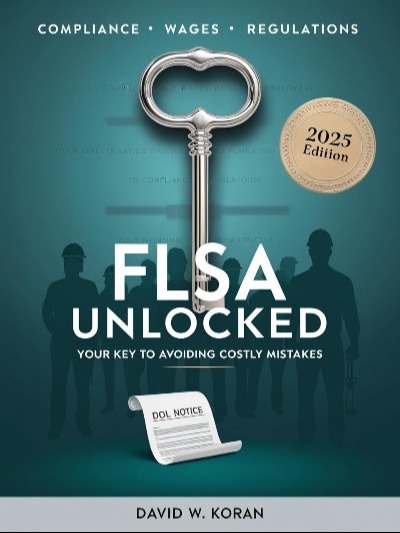Tennessee FLSA Laws: Your Guide to Compliance
Ensure Compliance with Tennessee-Specific FLSA Auditing
Minimum Wage in Tennessee
- Federal FLSA: $7.25/hour.
- Tennessee Law: No state minimum wage law; defaults to federal $7.25/hour (non-tipped) as of March 10, 2025. Tipped employees: $2.13/hour, with a tip credit of $5.12/hour—employers must ensure tips plus wage meet or exceed $7.25/hour. Local governments prohibited from setting higher rates under state preemption (Tenn. Code Ann. § 50-2-112).
- What You Need to Know: Federal rate governs, but failing to bridge tip shortfalls can trigger back wages, double damages, and federal penalties up to $2,653 per violation (2025 rate).
Overtime Pay
- Federal FLSA: 1.5x regular rate for hours over 40/week.
- Tennessee Specifics: No state overtime law; follows federal 40-hour rule exclusively. Overtime calculated at 1.5x regular rate (e.g., $10.88/hour for $7.25/hour workers). Exemptions align with FLSA: executive, administrative, professional employees earning ≥$1,128/week, and highly compensated employees ≥$151,164/year (U.S. DOL, January 2025).
- Risk: Misclassification or unpaid overtime risks U.S. DOL audits, as Tennessee lacks a state labor agency to enforce wage laws—federal oversight dominates.
Child Labor
- Tennessee Rules: Minors under 14 restricted to limited roles (e.g., newspaper delivery); 14–15 capped at 3 hours/school day, 8 hours/non-school day, 18 hours/school week (9 p.m. limit); 16–17 limited to 8 hours/day, 30 hours/school week, unless school/parental consent allows more (Tenn. Code Ann. § 50-5-104). Hazardous jobs (e.g., operating power-driven machinery) banned under 18. Work permits required under 16 outside school hours.
- Federal FLSA: Aligns with Tennessee, but state’s tighter 16–17 hour limits and permit rules are stricter—state law prevails where more protective.
- Compliance Note: Violations incur state fines up to $1,000 per instance; federal penalties reach $15,629 per instance, or $71,031 if injury/death occurs.
Recordkeeping
- Federal FLSA: 3-year retention of payroll, hours, and employment records.
- Tennessee Addition: No state-specific retention law for private employers; federal 3-year rule applies. Child labor employers must retain work permits and age proof for minors under 18 (Tenn. Code Ann. § 50-5-111). Pay statements recommended but not mandated.
- Key Detail: Non-compliance with federal rules risks penalties up to $2,653 per violation, with no state buffer to soften enforcement.
Enforcement & Penalties
- Federal: U.S. DOL enforces with back wages, liquidated damages (up to double unpaid wages), and fines up to $2,653 per wage violation (2025 rate). Child labor penalties: $15,629/instance, or $71,031 if injury/death occurs.
- Tennessee: No state wage enforcement agency; Tennessee Department of Labor and Workforce Development oversees child labor only, with fines of $50–$1,000 per violation (Tenn. Code Ann. § 50-5-112). Wage disputes rely on federal DOL or private lawsuits, where double damages are common.
- Overlap: Federal dominance means compliance hinges on FLSA, but state child labor fines add risk.
Why It Matters for Your Business
- CFOs and Managers: Tennessee’s lack of a state minimum wage or overtime law simplifies some payroll, but reliance on federal FLSA and strict child labor rules heighten misclassification risks. Tipped wage enforcement and potential class-action suits (with double damages) loom large, especially in hospitality-heavy regions.
- Avoid Costly Mistakes: Proactive FLSA audits tailored to Tennessee’s federal-state blend can prevent costly DOL penalties and litigation.
Schedule Your Tennessee FLSA Audit Today
Stay ahead of compliance risks—align with Tennessee’s labor framework and federal FLSA standards. Contact an expert for a tailored audit now.

